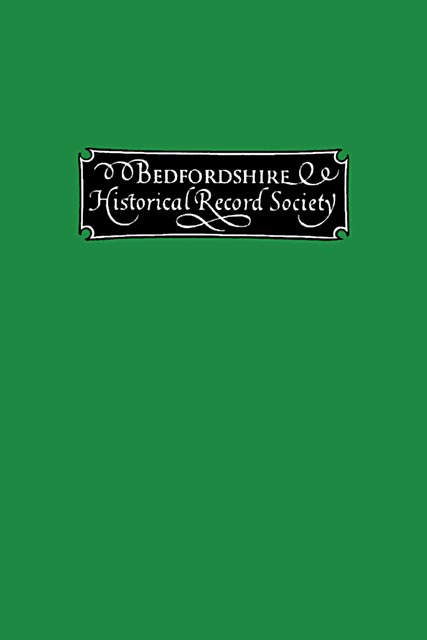Book contents
- Frontmatter
- Contents
- Symbols used in Transcription
- Abbreviations
- The Civil War Papers of Sir Will. Boteler, 1642 - 1655
- The Ship - Money Papers of Henry Chester and Sir Will. Boteler, 1637 - 1639
- Notes on The Family of Coke, of Newbury, Co. Beds.
- Some Recent Accessions to The County Record Office
- General Index
The Ship - Money Papers of Henry Chester and Sir Will. Boteler, 1637 - 1639
Published online by Cambridge University Press: 18 July 2023
- Frontmatter
- Contents
- Symbols used in Transcription
- Abbreviations
- The Civil War Papers of Sir Will. Boteler, 1642 - 1655
- The Ship - Money Papers of Henry Chester and Sir Will. Boteler, 1637 - 1639
- Notes on The Family of Coke, of Newbury, Co. Beds.
- Some Recent Accessions to The County Record Office
- General Index
Summary
INTRODUCTION.
By a fortunate coincidence, two collections of family muniments, recently deposited through the generosity of their owners at the County Record Office, Bedford, were each found to contain documents bearing on the collection of Ship-Money in Bedfordshire. The deposit by Mr. A. J. B. Chester, of North Crawley, Bucks., was the result of the kind introduction of Major Duberly; the origin of the Boteler papers is dealt with in the introduction to the foregoing article. The existence of these documents was in each case due to the head of the family having been sheriff (the officer responsible for the raising of the money) during the period of the levy. For the shrievalty of Henry Chester of Tilsworth, we have only a few records, but among the papers of his successor, William Boteler of Biddenham, is a larger group of valuable and detailed documents; the latter is referred to below as W.B. These papers yield little or no evidence which contradicts the general accounts in the standard authorities, but they throw a good deal of fresh light on the methods of assessment and collection in Bedfordshire and amplify our previous meagre knowledge. The methods adopted in transcription are the same as those used in the previous article.
The unconstitutional act of Charles I in levying an ancient tax, designed for the provision of ships for the navy, on inland as well as coastal counties, provoked much opposition, as is well known. The tax was revived on the maritime counties by writ of 20 Oct. 1634: with that we are not concerned. The second writ was issued on 4 Aug. 1635, and was followed by further writs in the four years 1636-39, the amounts assessed in each of these years being the same as in that of 1635, except in 1638, when it was a trifle over one-third of the usual sum. After 1639 no attempt to raise ship-money was made. A good general account of the main effect of the imposition in Bedfordshire, drawn wholly from the State Papers, has alreadyb been published.
In order to clarify these introductory remarks, the following table will be found helpful.
- Type
- Chapter
- Information
- Publisher: Boydell & BrewerFirst published in: 2023



